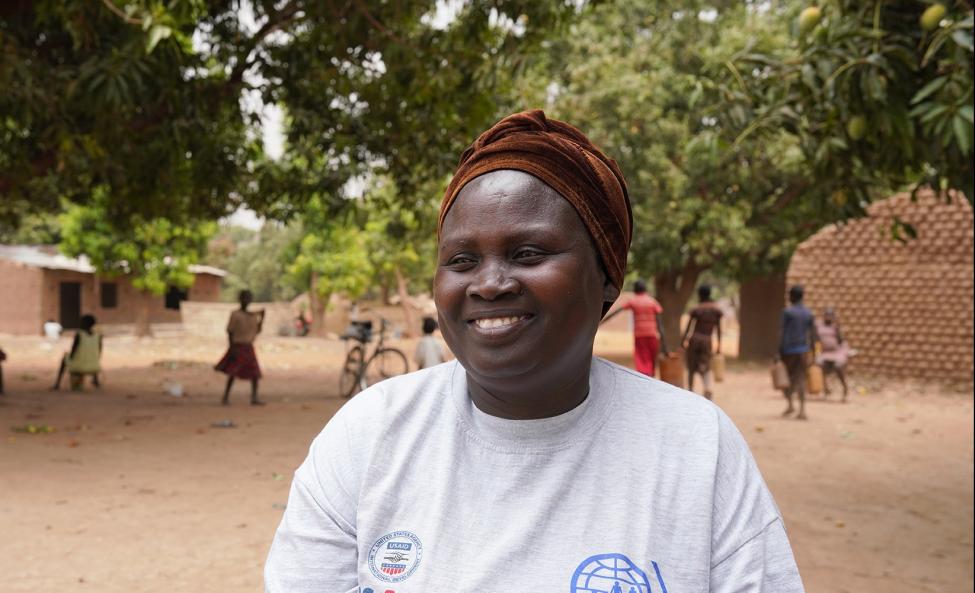-
Who we are
WHO WE AREThe International Organization for Migration (IOM) is part of the United Nations System as the leading inter-governmental organization promoting since 1951 humane and orderly migration for the benefit of all, with 175 member states and a presence in over 100 countries. Germany joined the IOM in 1954.
About
About
IOM Global
IOM Global
-
Our Work
Our WorkAs the leading inter-governmental organization promoting since 1951 humane and orderly migration, IOM plays a key role to support the achievement of the 2030 Agenda through different areas of intervention that connect both humanitarian assistance and sustainable development. In Germany, IOM implements projects mainly in the areas of migrant protection and assistance, as well as advocating for migrants’ rights and serving as a liaison office for German funded IOM activities worldwide.
- Data and Resources
- Take Action
- 2030 Agenda
Environmental migration, like other types of migration, is gender specific. The needs and priorities of migrants differ by gender, as do the risks they face along the way.
Migrants often have different access to information, resources or employment opportunities, especially when they arrive in new places or countries. Existing inequalities need to be recognised and addressed.
Environmental migration needs gender-sensitive responses
We need adequate and durable responses to environmental migration that take into account gender related needs and impacts. People's ability to adapt to climate impacts and their decisions on whether and how to migrate are shaped by gender inequalities.
For example in South Sudan, which has been affected by massive flooding for the third year in a row. Large parts of the country are under water, more than 2 million people have been displaced within the country and have lost their livelihoods as smallholder farmers. 60 percent of the population do not have enough to eat. Many of them are women. They are the ones struggling with the consequences of the war and the floods, after many men have lost their lives during the years of conflict. Although they are exposed to several dangers and their options are often more limited, they develop effective adaptation strategies and improve their own situation and that of their community through their will to shape.
“We were the first committee made up of mostly women in our area, and I know there was skepticism on whether we would rise to the occasion”, says Veronica Raphael Yor, a forty-six-year-old mother of five. She lives in Jebel Kheir, a village in the Western Bahr el Ghazal region of South Sudan, and is Deputy Chairperson of the local Water Management Committee, which is made up of 12 villagers, eight of whom are women. Before, leadership was a man's task, with only men speaking in the community meetings. Now, the women are co-responsible for the management of three community water points, which supply more than 4,500 people with clean drinking water. Veronica and the other committee members achieved substantial improvements in water management in a short time.
"What we have achieved for our community with the women-led committee has also encouraged other women to realize that we have the capacity to lead and make a difference."
Women are key in addressing climate impacts
The example shows how empowering women in South Sudan can help communities address the impacts of climate change and contribute gradually to societal changes.
Women play an important role in their families and communities by providing resources for their families, facilitating migration and adapting to changes. They are effective actors, leaders, adaptors.
Their contribution is essential to address the impacts of climate change. We need the participation of all genders so that policies and interventions can build on gender-specific capabilities, knowledge and perspectives. This is critical to ensure that they are effective, and that they do not exacerbate existing inequalities or create new ones.
Women, especially migrant women, must have the opportunity to actively participate in mitigating climate change and pursuing adaptation strategies.
This article was written by Jean-Philippe Chauzy for International Women's Day 2022. He is Chief of Mission at IOM Germany. He has worked for the International Organization for Migration for more than 20 years, including heading the IOM Missions in the Republic of South Sudan and the Democratic Republic of Congo. From 2013 to 2015, he was the UN’s World Food Programme (WFP) Director of Communications in Rome.
